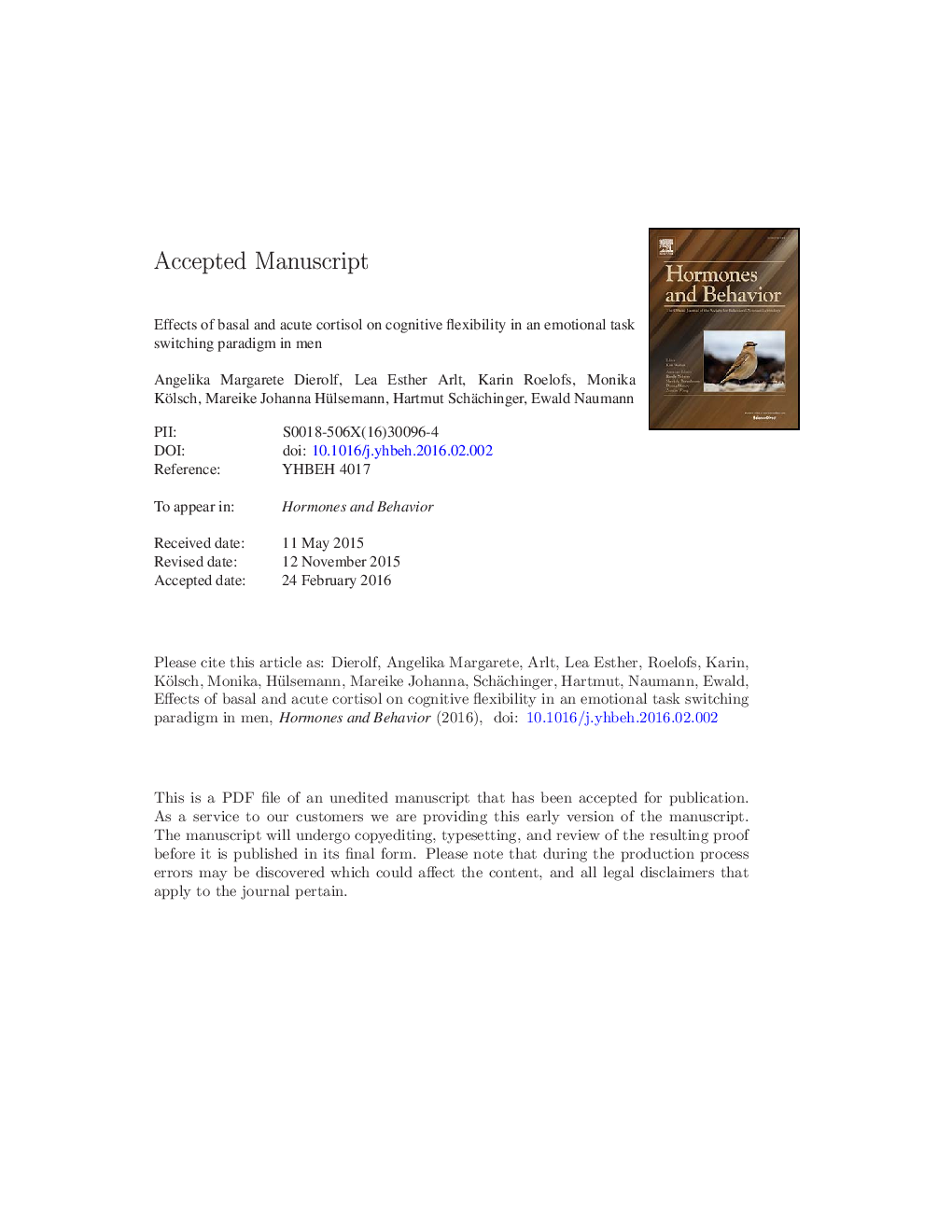| Article ID | Journal | Published Year | Pages | File Type |
|---|---|---|---|---|
| 6794381 | Hormones and Behavior | 2016 | 37 Pages |
Abstract
The stress hormone cortisol is assumed to influence cognitive functions. While cortisol-induced alterations of declarative memory in particular are well-investigated, considerably less is known about its influence on executive functions. Moreover, most research has been focused on slow effects, and rapid non-genomic effects have not been studied. The present study sought to investigate the impact of acute cortisol administration as well as basal cortisol levels on cognitive flexibility, a core executive function, within the non-genomic time frame. Thirty-eight healthy male participants were randomly assigned to intravenously receive either cortisol or a placebo before performing a task switching paradigm with happy and angry faces as stimuli. Cortisol levels were measured at six points during the experiment. Additionally, before the experiment, basal cortisol measures for the cortisol awakening response were collected on three consecutive weekdays immediately following awakening and 30, 45, and 60Â min after. First and foremost, results showed a pronounced impact of acute and basal cortisol on reaction time switch costs, particularly for angry faces. In the placebo group, low basal cortisol was associated with minimal switch costs, whereas high basal cortisol was related to maximal switch costs. In contrast, after cortisol injection, basal cortisol levels showed no impact. These results show that cognitive flexibility-enhancing effects of acute cortisol administration are only seen in men with high basal cortisol levels. This result supports the context dependency of cortisol administration and shows the relevance of taking basal cortisol levels into account.
Related Topics
Life Sciences
Biochemistry, Genetics and Molecular Biology
Endocrinology
Authors
Angelika Margarete Dierolf, Lea Esther Arlt, Karin Roelofs, Monika Kölsch, Mareike Johanna Hülsemann, Hartmut Schächinger, Ewald Naumann,
